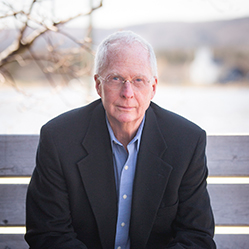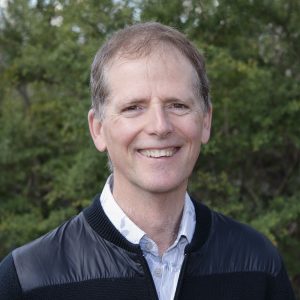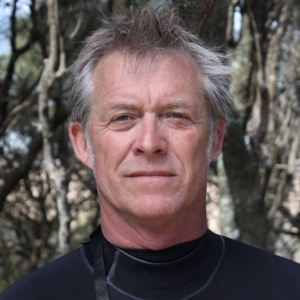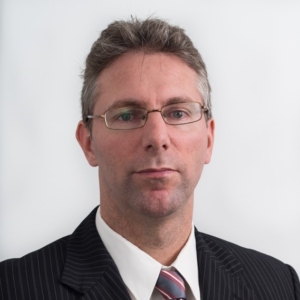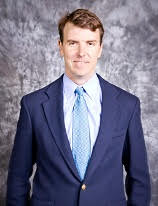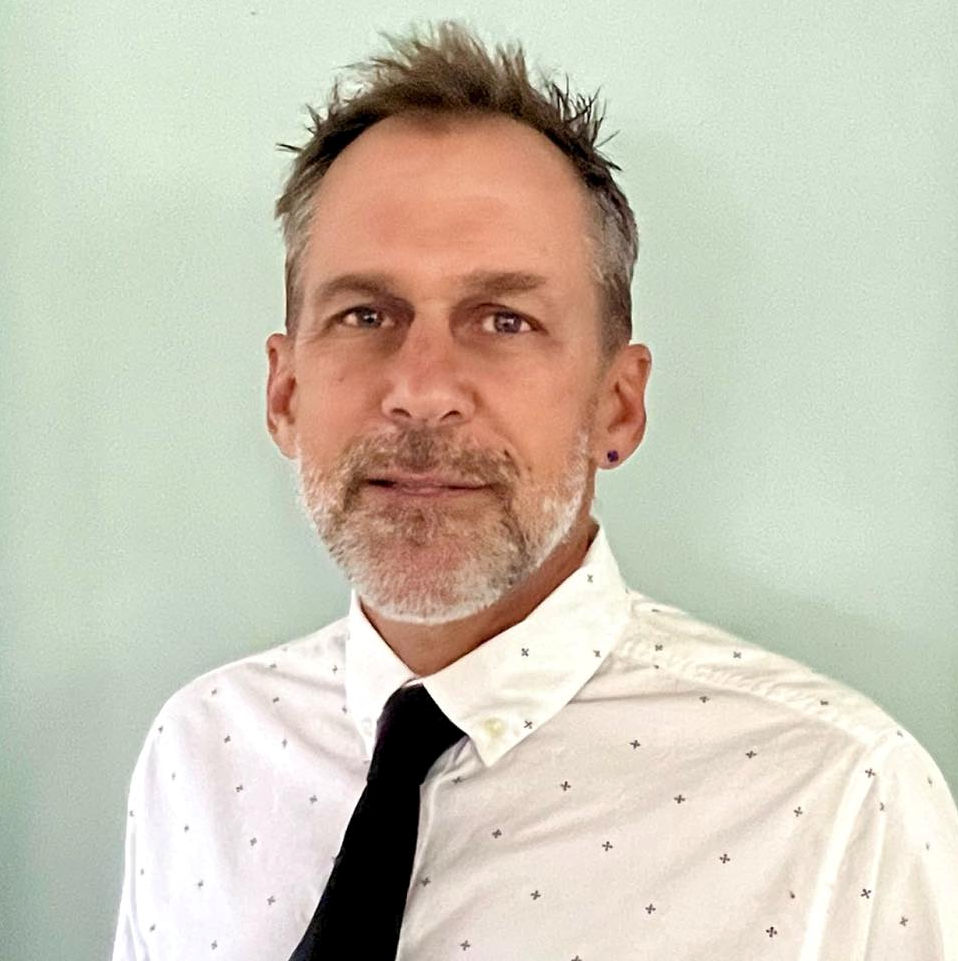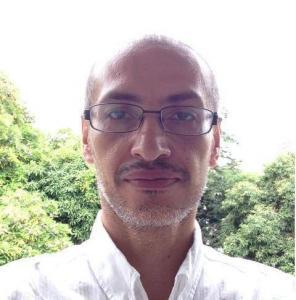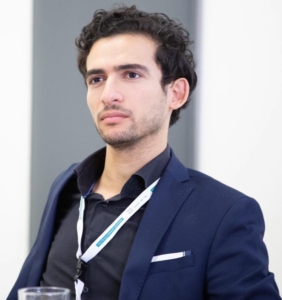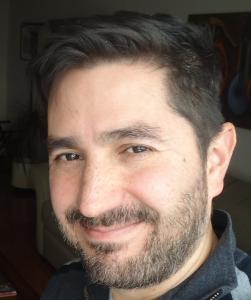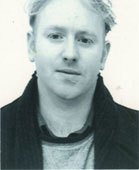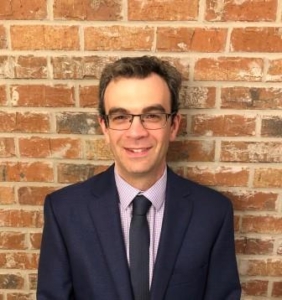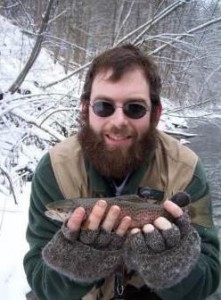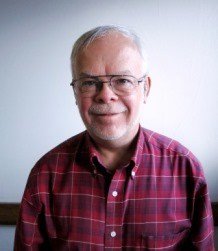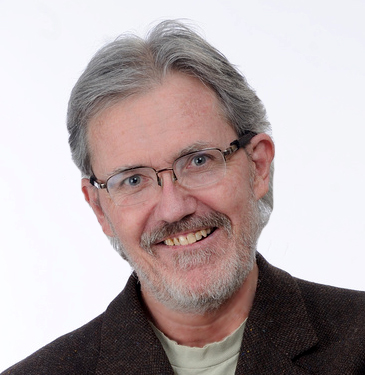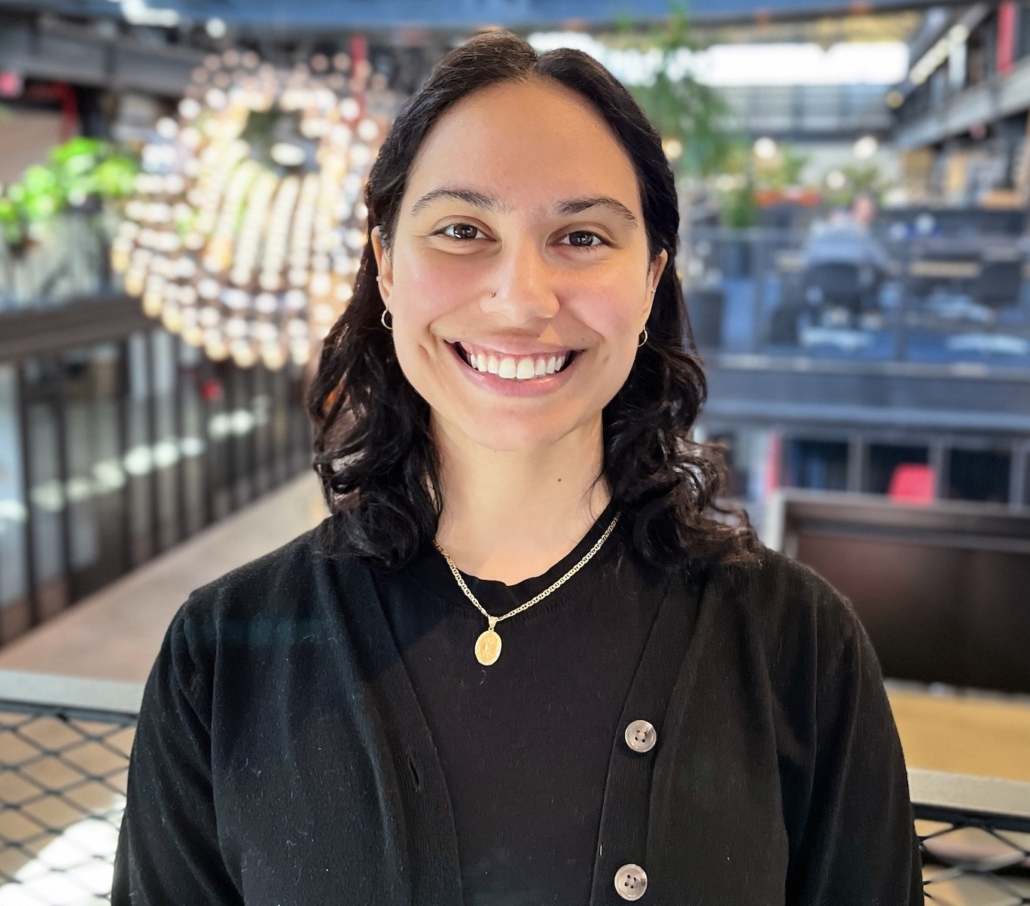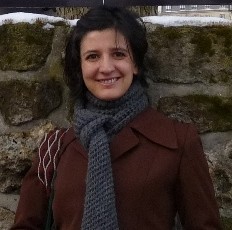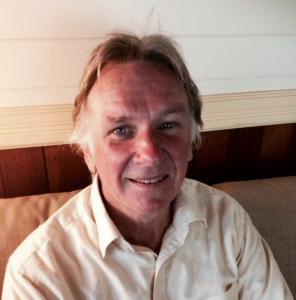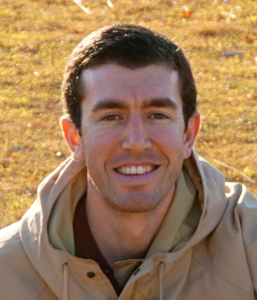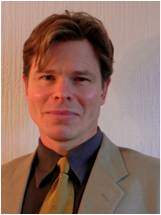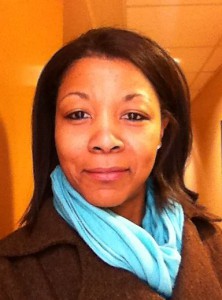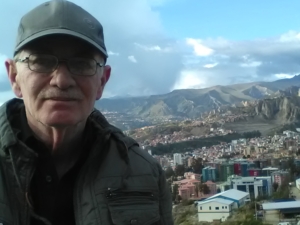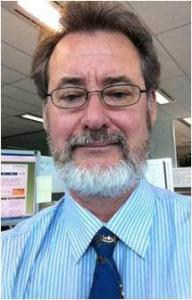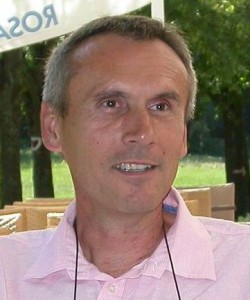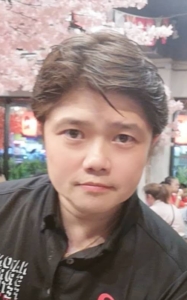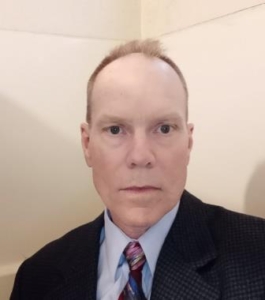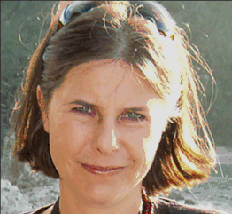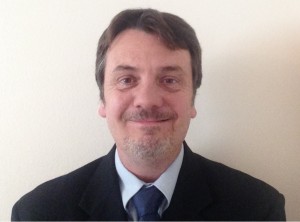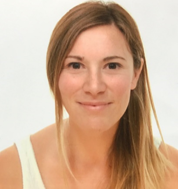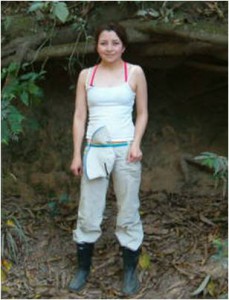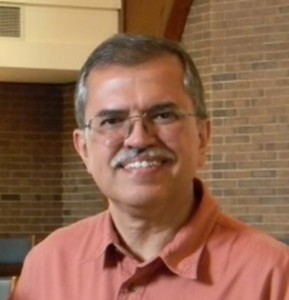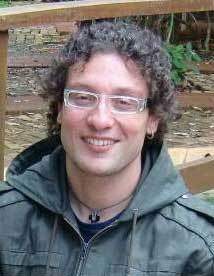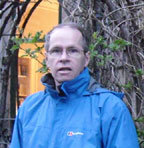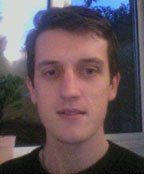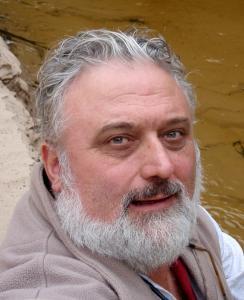CASSE chapters provide opportunities to collaborate on activities to advance the steady state economy. A chapter can cover one of a variety of geographic scales:
- College or university campus
- City or county
- State or province
- Nation
- Watershed, ecoregion, or other geographic region
Chapter directors, in consultation with CASSE staff, determine the activities undertaken by the chapter. Chapters can work on projects such as gaining support for the CASSE position on economic growth, developing outreach materials, and arranging speaking engagements.
If you want to get involved with a chapter, please use the contact information provided in the directory below. If you are interested in starting a new chapter, please download the chapter guidelines and contact us. Also see our Staff page, if you do not see a chapter director in your area.
Directory of CASSE Chapters
Atlantic Canada Chapter
Location: Port Royal, Nova Scotia
Director: Gregory Heming
Contact: Gregory’s email
Australian Capital Territory Chapter
Location: Canberra, Australia
Director: Jonathan Miller
Jonathan works to raise awareness of global limits to growth and advocates the need to move to a steady-state economy. He has been involved most of his adult life in nature conservation, mainly working with the Australian Government, but also as a volunteer, committee member, or employee of conservation non-government organisations. Jonathan moved his focus to his current work when he realised that Earth’s biodiversity would never be secured long-term without addressing the underlying drivers of environmental damage. Jonathan has degrees in forest science and mathematics/statistics, has researched economics extensively, and advised the ACT Government and an Australian Senator on economic policy.
Contact: Jonathan’s email
Australian Regional Communities Chapter
Location: Broulee, New South Wales, Australia
Director: Martin Tye
Martin is many things: a keen surfer, bushwalker, small business owner, three-time political candidate, family man, traveler, and nature and music lover. He holds a B.S. in applied geography. In his spare time, he studies ecological economics and history. Most of all, Martin is passionate about improving the quality of life for current and future generations and restoring wildlife. Martin is an active community member, keen to promote the steady state economy to those living in Australia’s rural districts, known to Aussies as “Australian regional communities.”
Contact: Martin’s email
Brisbane Chapter
Location: Brisbane, Queensland, Australia
Director: Craig Parker
Craig has experience in the financial services and renewables sector and has a keen interest in the relationship between economics and the environment. He understands that our way of life is dependent on the health of our environment, and he is passionate about taking this message to the public. Craig wants to raise awareness that we don’t have to choose between our economy and the environment and that an economy can deliver a high quality of life while simultaneously preserving our environment for generations to come.
Contact: Craig’s email
Colorado Chapter
Location: Denver, Colorado, USA
Director: Andrew Rex
Andrew is a Senior Electrical Engineer with an engineering consulting firm, studying and designing power distribution systems for industrial facilities. He earned his B.S. in Physics and Mathematics from the University of Wisconsin and his M.S. in Engineering Systems from the Colorado School of Mines. His interest in environmental issues led him to CASSE, and he studies political economy and institutional economics in his spare time. In Colorado, he advocates for CASSE’s position at gatherings of concerned citizens and coordinates with other organizers.
Contact: Andrew’s Email
Colorado River Chapter
Location: Colorado, USA
Director: Gary Wockner
Gary is an award-winning activist and writer. Based in Colorado, Gary focuses on protecting water and river resources, climate change, and population stabilization. He has written several books, dozens of magazine articles, and hundreds of columns. He has been named an “eco-rockstar impacting the planet,” a “river hero,” and a “river guardian” for his work protecting rivers in and beyond Colorado.
Contact: Gary’s Email
Colombia Chapter
Location: Santiago de Cali, Colombia
Director: Fabio Arias
Fabio Arias is Professor of Economics at the Universidad del Valle, Colombia. He has been responsible for several courses on sustainability where the Steady State Economy is a subject of constant analysis. His research has focused on collective choice and sustainability, particularly how the policy of municipal territorial ordering promotes actions for sustainability. In Colombia, all municipalities must develop a land use plan that is participatory and fully considers the economic and environmental aspects. The results of his research confirms that cities are machines of growth, in the sense that local actors promote economic growth, while alternative movements towards sustainability are derived from synergies with strong community leaders in association with state sections that promote social welfare and environmental policy.
Contact: Fabio’s email
European Union (EU) Chapter
Location: Brussels, Belgium
Director: Adel Ramdani
Adel has been the Director of the CASSE EU Chapter since July 2020. He studied Political Science, International Relations and Human Rights in seven universities across three continents. He holds a bachelor degree in Political Science from the University of Brussels (ULB), and spent one year as an Erasmus student at Uppsala University (Sweden). Adel then integrated the Global Studies Programme and spent each semester studying abroad in Germany, South Africa and Thailand. In 2019, he received a scholarship from the European Union to carry field research in Beirut at Saint Joseph University and Morocco at the International University of Rabat where he dedicated his work on sustainable agriculture. In 2020, Adel was appointed to be the Peace and Security Delegate at the G7 Youth Summit and was selected by the Council of Europe as the youth delegate for Belgium at the Congress of Local and Regional Authorities. In Brussels, Adel leads CASSE’s advocacy efforts in making EU policies more socially and ecologically embedded and in line with the Steady State Economy.
Contact: Adel’s email
London, Ontario Chapter
Location: London, Ontario, Canada
Director: Juan Cardona
Juan has plans to start a Master’s Degree in Public Administration at the University of Western Ontario, Canada. He works for the local government in the Community Services Division as a financial analyst. He also holds a postgraduate degree in Management & Quality and a Bachelor’s degree in Business Administration at EAFIT University Medellin, Colombia. Juan is making efforts to apply the ideas of Steady State Economics to himself first. He feels strongly about how the philosophy of the Steady State Economy is a good response to the current problems facing the world and how it can achieve effective improvements in the levels of consciousness and well being for all humanity. He also wants to help influence public policy and educate society about the need of building sustainability in a world of limited resources.
Contact: Juan’s Email
London Chapter
Location: London, UK
Director: Desmond Kilroy
Desmond developed an interest in sustainable economics while doing an Msc Sustainable Development at the onset of the current financial crisis. His main professional interest is in the aspirational values of the sustainability agenda, i.e., ecological stability, social equity and economic efficiency. For six years he worked at the UK Empty Homes Agency as a consultant to the UK local authority sector on regeneration issues. Other experience includes managing NGO projects to create sustainable development benefits and some international development experience. In 2010 Desmond started a new organization for sustainable development advocacy, Democratic Planet Capital (DPC), focused on the systemic barriers to sustainability and the financial innovations needed to address them.
Contact: Desmond’s email
LSU Chapter
Location: Baton Rouge, Louisiana, USA
Director: Brian Snyder
Brian Snyder is an assistant professor of environmental science at Louisiana State University. His research focuses on the theory and modeling of energy and socio-ecological systems. His recent theoretical work has focused on anthroecological theory, while his recent applied work has focused on negative emissions technology and policy. He has published 40 peer-reviewed journal articles in a diverse array of journals including Ecological Economics, Ambio, Energy Policy, Applied Energy, and Sustainability Science. A native of Maryland, he earned a B.S. in biology from the University of Maryland and a Ph.D. in ecology from the University of Georgia. He now lives in Baton Rouge, Louisiana with his wife and two daughters.
Contact: Brian’s Email
Maine Chapter
Location: Argyle, Maine, USA
Director: Steve Coghlan
Steve earned a Ph.D. in Environmental and Forest Biology from SUNY College of Environmental Science and Forestry in Syracuse, New York, where he studied fisheries ecology and management. Currently, he is Associate Professor of Freshwater Fisheries Ecology in the Department of Wildlife, Fisheries, and Conservation Biology at the University of Maine. He teaches courses in General Ecology, Ecological Statistics, Freshwater Fisheries Ecology and Management, and Biophysical and Ecological Economics; his current research focuses on ecological consequences of dam removal and restoration of native fishes. He lives in rural Argyle Township, Maine with his wife Jen and their four dogs and four cats, where he enjoys trying to live gently on the land and reducing his fossil-fuel consumption and ecological footprint by organic gardening, raising livestock, hunting, fishing, foraging, and harvesting firewood.
Contact: Steve’s Email
Milwaukee Chapter
Location: Milwaukee, Wisconsin, USA
Director: Jim Carpenter
Jim teaches Ecological Economics at Milwaukee Area Technical College and has a M.A. in Economics and a B.S. in Engineering. He has integrated the principles of the CASSE Position Statement into his economic courses. He teaches that full employment can be achieved without real GDP growth if the population stops growing. Jim lives simply, uses public transit, vacations locally, and lives in a small condo with his wife.
Contact: Jim’s Email
Mississippi Chapter
Location: The University of Mississippi in Oxford, MS, USA
Director: David J. Rutherford
David is Associate Professor in the multi-disciplinary Department of Public Policy Leadership and also serves as Executive Director of the Mississippi Geographic Alliance. His undergraduate and Masters degrees are in geography, and he earned his Ph.D. in geography/geographic education from Texas State University. His broad background in research and teaching in geography covers physical, human, regional, techniques, and educational components of the discipline. The current focus of his teaching and research is on major processes of change in the contemporary world. Chief among these are the interactions between the environment and the economy, particularly the unsustainability of human activity that depends on the unlimited growth model of development within a natural environment that possess limits. For more information visit David’s website at https://davidrutherford.org/
Contact: David’s Email
New York City Chapter
Location: Bronx, New York, USA
Director: Gabrielle A. Perez
Gabrielle earned her bachelor’s degree in Environmental Studies with minors in Economics and Philosophy at Fordham University in 2021. She was an environmental leader on campus, serving as co-president of Students for Environmental Awareness and Justice and as president of the United Student Government’s sustainability committee. As an undergrad, she also worked for the U.S. Fish and Wildlife Service at John Heinz National Wildlife Refuge at Tinicum and for the environmental justice nonprofit The Bronx is Blooming. Now she is working on her M.S. in Sustainability in the Urban Environment at The City College of New York while still working for The Bronx is Blooming and for a carbon-removal tech start-up called Vycarb, Inc. In her leisure time, she indulges in simple pleasures such as cuddling with her cat Morris, visiting local parks, and philosophizing with friends and family about love, humanity, and the planet as a whole.
Contact: Gabrielle’s email
Nicaragua Chapter
Location: Managua, Nicaragua
Director: Claudia Múnera Roldán
As a biologist, Claudia’s main interest is conservation of biodiversity. With working experience in Colombia, Nicaragua, and Guatemala, she has been involved in many conservation related projects, including endangered species, protected areas, bird watching tourism, invasive species, and recently climate change adaptation. This was how she became interested in the economic, social, and cultural issues behind the traditional economic growth model that is happening worldwide. She has a Master’s in World Heritage and Cultural Projects for Development from ITCILO and University of Turin, and her current research is related with the social aspects of conservation, looking for a way to reconcile nature conservation with society through a biocultural heritage approach. At this moment, Claudia is based in Managua, where she works as an independent consultant. She will be gathering more people and organizations in Nicaragua that are concerned about the problems of economic growth regarding the reality of our environment.
Contact: Claudia’s email
Northern Rivers Chapter
Location: Northern Rivers, New South Wales, Australia
Director: Peter Brennan
Peter Brennan is an academic with a PhD in ecology and natural resource management from the University of Hawaii. He has been an Academic Director with SIT Study Abroad for 20 years and currently directs an undergraduate program focused on Sustainability and Environmental Action. The program is cross-disciplinary and includes eco-psychology, environmental philosophy, ecology, ecological economics, and sustainability science. Previously, Peter taught at the University of Auckland, New Zealand; Queensland University of Technology; and the University of Hawaii. He has also worked as a consultant ecologist and environmental planner in both Hawaii and Australia.
Contact: Peter’s email
North Idaho Chapter
Location: Hayden, Idaho, USA
Director: Rob Harding
Rob is a planetary health activist who cares deeply about protecting life on Earth and doing so in a loving and intentional manner. A graduate of Santa Clara University with a B.S. in Accounting, Rob is committed to creating a more just and sustainable world with competence, conscience, and compassion. He is an American Society for Quality Certified Six Sigma Yellow Belt, a Royal Society of Arts Fellow, a member of Nature Needs Half, a member of the International Society for Ecological Economics, and author of the article “A Proposal for a United Nations Framework Convention on Population Growth” which has been nominated for multiple awards, including notable CASSE signatory Dick Smith’s Wilberforce Award.
Contact: Rob’s email
Location: Oslo, Norway
Director: Tormod Burkey
Tormod is a conservation biologist with a Ph.D. from Princeton University focused on protecting biodiversity and endangered species. He authored the book Ethics for a Full World (2017) and spent three years in Papua New Guinea as the Environment Programme Manager for the UN. He has served on the boards of the Rainforest Foundation and the Norwegian Carnivore and Raptor Foundation, advised parliamentarians on environmental policy, co-founded a wolf advocacy group, and worked with the Norwegian Green Party. He believes that political will is the limiting factor in bringing about meaningful change—not a lack of knowledge—and he is therefore drawn towards activism over research. In his free time, he is a keen observer of birds and other wildlife.
Contact: Tormod’s email
Ottawa Chapter
Location: Ottawa, Ontario, Canada
Director: Joanne Waisglass
Joanne works in the field of public relations and communications in Ottawa, Ontario. She holds a graduate diploma in public relations from Algonquin College, as well as an Hons B.A. in political science with a specialization in international relations from Carleton University. Her career focus is on corporate social responsibility and sustainability programming. Joanne believes in the principles of the CASSE position statement and is a firm believer in the potential for citizen civic engagement to help drive the shift toward a steady state economic model. She contributes to her community by volunteering with nonprofits focused on social justice issues.
Contact: Joanne’s email
Paris Chapter
Location: Ile-de-France Paris region
Director: Mark Cramer
Mark has a Ph.D. in literature, but he prefers the label of practitioner of a steady-state way of life. He and his wife Martha have taken the path of degrowth for the past quarter century, notably practicing the art of car-free living. He’s blended some 40 jobs and avocations on three continents, including university professor, investigative reporter, urban farmer, bicycle journalist, Spanish/English court interpreter and studious horseplayer.
Influenced by Ivan Illich, Serge Latouche, Henry David Thoreau, Herman Daly, the Critical Mass bicycle movement and the Bolivian artist Walter Solón Romero, Mark taught a class on degrowth at the grand école Sciences-Po in Paris.
Currently he is a member of the bicycle advocacy association Mieux se Déplacer à Bicyclette (MDB) and ATTAC92 Hauts de Seine, where he is a contributing editor to the Angle d’Attac92 newsletter. Attac, the Association for the Taxation of Financial Transaction and Citizens’ Action, is a leading advocate in Europe for environmental justice.
Mark has done book interviews on a variety of media, including the Bike Talk podcast, the Active Towns Youtube channel and CNN. A reviewer of one of his books called him “gently subversive” and Mark has adopted this moniker. His new book, published by CASSE, is If Thoreau had a Bicycle: the Art of the Ride.
Contact: Mark’s email
Queensland Chapter
Location: Queensland, Australia
Director: Richard Sanders
Richard is an ecological economist, futurist, environmental scientist and change agent who has delved deeply into the concept of sustainability for over 20 years and been a steady stater for over 40 years. He is employed as a principal policy officer within the Queensland government dealing with sustainability and resource management. He is executive officer and founder of Quest 2025, a not-for-profit community organisation which aims to: “help facilitate the transformation of society through informed people power and the democratic process from its current state of social, spiritual and ecological crisis into an enlightened civilisation that is ecologically sustainable and socially just by the year 2025”.
Contact: Richard’s email
Serbia Chapter
Location: Novi Sad, Serbia
Director: Ante Vujić
Ante Vujić is a biologist with a Ph.D. in diversity of Diptera (Syrphidae). He is a full professor at the Department of Biology and Ecology, Faculty of Sciences (University of Novi Sad, Serbia), whose main interest is biodiversity conservation, entomology, and the protection of endangered species. He intends to implement ecological economics into university curriculum in Serbia and point out the importance of biodiversity through economic valorizations. He believes that biodiversity conservation through a steady state economy can provide potential solutions for many problems. He wants to help spread CASSE’s concept in Serbia and welcomes your emails.
Contact: Ante’s email
Shanghai Chapter Director
Location: Shanghai, China
Director: Edwark Pak
Edward is the co-founder of STEPIO Laboratory and a senior PhD student studying sustainable economics at the Graduate School of the Chinese Academy of Social Sciences (GSCASS) in Beijing, China. Prior to co-founding STEPIO, Edward was Regional Director at Mace Group UK. In the last 25 years, he has managed top-tier clients such JLL, Sodexo, and Johnson Controls in the Asia-Pacific, as well as received his license as a BIM strategist and a director position at Hawaii’s Hilo Lion’s Club. Edward completed his bachelor’s degree at the University of Hawaii and his master’s at the University of Reading.
Contact: Edward’s email
Sierra Nevada Chapter
Location: Sonora, California, USA
Director: Cole Thompson
Cole is a cyber security professional and a former US Army officer and a tank platoon leader. He graduated from UC Berkeley with a BA in Political Science (honors) and a Master’s in Journalism, and he was a Bosch Fellow in Germany. He has given presentations at cyber security conferences on using Euclidean distance math to predict behavior of unknown software. His interest in steady-state economics sparked during university economics courses in the long-term viability of human civilization. Within the mission of CASSE, Cole is interested in finding ways to quantify the limits of waste sinks in conventional macroeconomic terms.
Contact: Cole’s email
South Africa Chapter
Location: KwaZulu-Natal, South Africa
Co-Director: Gertrud Lomas-Walker
Gertrud Lomas-Walker has for the past 20 years worked in the field of sustainability and in local economic development for a large South African financial services organization, and later as an advisor to companies for an international assurance and advisory firm. Her areas of speciality are sustainability strategy, integrated reporting and governance. She is pursuing a non-consumption driven ecological economic agenda and helping organisations and communities prepare for the transition. She is a political science major and has an honors degree in organizational development.
Contact: Gertrud’s email
Southern Utah Chapter
Location: Southern Utah, USA
Director: Forrest Woolman
Forrest Woolman became an advocate for the steady state economy after reading Supply Shock in 2014. Coming from a background of working on sustainable solutions as a volunteer for the organization Common Cause, Forrest recognizes the need for increasing awareness of limits to growth and the steady state solution in local communities. Engaging in discussions with groups and individuals, Forrest encourages people to re-evaluate their beliefs about living in an economic system focused on increasing consumption. Forrest teaches accounting and business management through MBO Partners, Inc., and infuses these courses with big-picture thinking about sustainability, including the need for a steady state economy. Forrest was the controller for 9 years, from 2006 – 2015, working with the Independent Living Center of Southern California and with the Los Angeles Urban League. He has a Bachelor of Arts degree in history and political science from UCLA and a graduate CPA certificate at Santa Monica College. In 2016 he completed his Master’s Degree in Sustainability through the University of Saint Francis. Forrest likes to travel and camp with his wife, hike with his dog, and play drums, bass, piano and flute.
Contact: Forrest’s Email
Sweden Chapter
Location: Sweden
Laura Vivas
Laura has a Ph.D. in Business Administration from Ramon Llull University in Spain. Her research was carried out in the Finance Department, where she studied the market’s impact on corporate governance and sustainability reports. Laura is passionate about ecological economics and is convinced that we cannot sustain our living standards with unlimited growth on a limited-resource planet. Laura is based in Sweden where she established a start-up that measures the economic impact of the Triple Bottom Line (Planet, Person, Profit) in the financial markets using unstructured data together with advanced analytics techniques.
Contact: Laura’s email
Tolima Chapter
Location: Tolima, Colombia
Director: Sandra Marcela Cely Santos
Marcela works at a Regional Innovation Institute which educates people living in rural landscapes and supports them in the establishment of cooperatives and associations. The purpose is to improve livelihoods, build equitable communities, and re-empower communities to build a better future. Marcela is a biologist with a passion for wildlife conservation and a deep interest in biodiversity conservation in productive landscapes. She believes that agroecology and sustainable food systems are critical to achieving healthy landscapes and a sustainable economy.
Contact: Marcela’s email
Toronto Chapter
Location: Toronto, Ontario, Canada
Director: Ryan Dyment
Ryan is a Chartered Accountant and the Executive Director of IRBE, a non-profit organization that connects economic and environmental issues and implements shared-resource projects in Toronto. Ryan started his career working at KPMG, an international accounting firm, and moved to the health care industry for several years before founding IRBE. In his day-to-day life, Ryan aims to limit his participation in the growth economy, build community and advocate for a sustainable economic model. Ryan is a graduate of McGill University and serves on the Board of Wildlife Preservation Canada, a registered charity that addresses biodiversity issues.
Contact: Ryan’s email
Upstate South Carolina Chapter
Location: Simpsonville, South Carolina, USA
Director: Gerry Greaves
Gerry is a retired engineer with a BS in Civil Engineering from the University of Rhode Island who worked at Owens Corning, most recently in the Sustainability organization on building science. He focused on improving the energy efficiency of homes including zero-energy homes. This led to evaluations of the effects of efficiency improvements on climate change and the conclusion that while efficiency improvements can help significantly, they are not enough. A switch to renewable energy will be required. However, that’s not going to help fresh water or food issues, or other pollution and resource issues. A steady state economy is required for that. In retirement, Gerry is working on the economics of low or no growth and is particularly concerned with unemployment, inequality, our ability to manage the stability of the economic/financial system in no growth scenarios. For more information see Gerry’s Website.
Contact: Gerry’s Email
Vienna Chapter
Location: Vienna, Austria
Director: Graziano Ceddia
Graziano is an economist with a PhD in Environmental Economics and Management (Ebor, UK). He is Associate Professor in Sustainable Development at MODUL University (MU) Vienna, where he teaches ecological economics and where he also serves as president of the MU Sustainability Committee. He has worked on interdisciplinary topics looking at the interactions between environmental and socio-economic systems, including the management of invasive alien species and infectious diseases. More recently he has been working on the relationship between agricultural intensification and deforestation in tropical regions and looking into the existence of Jevons paradoxes in land use changes. His interest in ecological economics has come from his dissatisfaction with the way in which standard neoclassical theory deals with environmental issues. He firmly believes in the role of education and in the necessity of providing new generations with an alternative paradigm capable of explaining the current energetic, environmental and economic crisis.
Contact: Graziano’s email
Yorkshire Chapter
Location: Leeds, UK
The Yorkshire Chapter of CASSE holds meetings and events on the third Wednesday of each month at the University of Leeds. All are welcome to attend. The chapter also has a Facebook page.
Co-Directors: Brian Flynn and Owen Brear
Brian Flynn is a retired teacher concerned about the inexorable and widespread desire “to have more”. This dichotomy between having and being has been a matter of personal interest and struggle over the long term. Attending the Steady State Economy Conference held at Leeds University was a revelation to him, in that there appeared to be a real alternative to the current unsustainable system. With this in mind, he agreed to co-direct the Yorkshire chapter.
Owen Brear is a graduate in Environment, Economics and Ecology from the University of York and is currently studying a PhD with Bangor University in the area of ‘well-being’ and investigating the multi-faceted nature of the Ancient Greek word “eudaimonia”. Owen is interested in the intersection of economic thought and eudaimonic well-being as presented within the field of positive psychology. He is also a keen birdwatcher.
In Memoriam
Haydn Washington, New South Wales Chapter
Haydn was an environmental scientist, writer, and activist with a long history in environmental science. He was a Visiting Fellow and Sessional Lecturer in the Institute of Environmental Science at the University of NSW, and also worked in CSIRO, environmental NGOs (e.g. Director of the Nature Conservation Council of NSW), and as Director of Sustainability Projects at Willoughby City Council from 2007-2009. He was interested in sustainability in all its forms, and particulary in solving the environmental crisis. His books included Climate Change Denial: Heads in the Sand (2011) and Human Dependence on Nature (2013).
